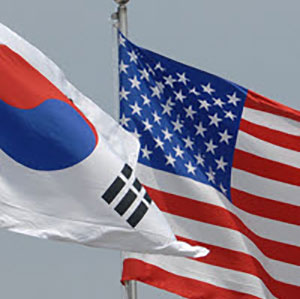Beyond K-Pop: Building a Bridge between South Korea and the United States through Soft Power
Myoung-Gi Chon examines key areas, such as public and corporate diplomacy, that can help translate South Korea’s soft power into tangible diplomatic influence. The commentary considers actionable policy options to enhance the effectiveness of these efforts.
Throughout history, the most enduring and effective forms of power have relied not on force or coercion but on attraction or persuasion. This principle is deeply rooted in both Western and Eastern traditions, emphasizing the strength of influence over brute force. Proverbs 25:15 states: “Through patience a ruler can be persuaded, and a gentle tongue can break a bone,” highlighting the power of patience and persuasion. Similarly, the Tao Te Ching illustrates how soft, adaptable forces—like water—can gradually erode what is rigid and seemingly unyielding (chapter 78). This wisdom extends into international relations, where power is often categorized into hard and soft power. Hard power relies on coercion through military force or economic sanctions, whereas soft power shapes behavior through attraction and persuasion (e.g., cultural influence, ideology, and institutions). As Joseph Nye describes, “hard power is like brandishing carrots or sticks; soft power is more like a magnet,” attracting others through shared values and mutual understanding.
This commentary explores opportunities to deepen relations between the Republic of Korea (ROK) and the United States through soft power by examining key areas, such as public and corporate diplomacy, that can help translate South Korea’s soft power into tangible diplomatic influence. It concludes by considering actionable policy options to enhance the effectiveness of these efforts.
South Korea’s Soft Power in the United States
The ROK has leveraged cultural assets to foster mutual relationships with the United States. The Korean Wave, or Hallyu, has emerged as a significant aspect of South Korean soft power in the United States over the past few years. K-pop groups, from PSY to BTS and BLACKPINK, have played a pivotal role in the global success of Hallyu. K-pop streams in the United States increased by 182% in 2024 compared with 2018, according to the Korea Times. Additionally, hit movies and television shows on Netflix, such as Parasite and Squid Game, have further strengthened South Korea’s cultural influence. Korean food and beauty products have also gained widespread popularity in the U.S. market. Notably, the rise of Hallyu has not only affected the entertainment industry but has also sparked a growing interest among Americans in learning the Korean language.
From the perspective of corporate diplomacy, the ROK has actively sought opportunities to engage with the U.S. government and influence public policy through strategic investments. South Korean corporations are making significant contributions to the U.S. economy. For example, Samsung has committed $17 billion to building a semiconductor fabrication plant in Austin, Texas. Similarly, SK Group has invested $22 billion in Georgia to advance semiconductor production and green energy initiatives. Recently, Hyundai Motor Group completed an electric vehicle manufacturing plant in Savannah, Georgia, making it the largest economic development project in the state’s history. These investments highlight South Korea’s use of corporate diplomacy to strengthen economic ties and policy influence in the United States.
Strategies Linking Soft Power to Public and Corporate Diplomacy
Despite the opportunities presented by public and corporate diplomacy driven by soft power, it remains uncertain how these assets have been effectively translated into tangible outcomes, such as national reputation and foreign policy in the United States. The ROK government needs to convert soft power (intangible assets) into concrete diplomatic strategies through public and corporate diplomacy (tangible assets).
To effectively translate soft power into tangible diplomatic influence in the United States, the ROK government should focus on cultivating strong, high-quality relationships with Americans as strategic publics. It should consider the following strategies to optimize the impact of South Korean soft power.
First, measuring soft power is critical for the ROK government’s efforts to shape both public and corporate diplomacy in the United States. Without robust evaluation tools, it is challenging to gauge where South Korea’s soft power currently stands, anticipate outcomes, and make data-driven decisions to strengthen diplomatic ties. Developing short-, medium-, and long-term metrics would allow policymakers and corporate leaders to track the effectiveness of their initiatives, ensuring that national goals are met and laying a foundation for more meaningful and sustainable engagement with American audiences.
Second, the “together, yet apart” strategy is crucial for effectively managing Korea-related institutes on U.S. university campuses. To maximize their impact, institutes such as Korea Corner, Korea Center, the King Sejong Institute, and various Korean studies centers should have clearly defined missions and undergo regular evaluations to assess their effectiveness and potential for collaboration. Rather than operating in isolation, these institutes should explore synergistic partnerships that enhance their collective influence. Expanding Korean-language programs and cultural initiatives—such as K-pop festivals, educational partnerships with local high schools, and community engagement events—can play a key role in strengthening public diplomacy. By fostering deeper connections with American students, faculty, and residents, these initiatives can promote South Korea’s culture and values more effectively, ensuring a sustainable and dynamic presence in academic and local communities.
Finally, South Korean companies operating in the United States should assess and communicate their cultural and economic contributions to local communities. The ROK government should actively support efforts to transform the value of these companies into a positive national reputation. Enhancing corporate social responsibility initiatives can help bridge the impact of Korean businesses with broader public perception. Companies should invest in programs that highlight their economic contributions, support for local businesses, and partnerships with universities. For example, Hyundai Motor Manufacturing Alabama in Montgomery, Alabama, and the Kia Assembly Plant in West Point, Georgia, have played significant roles in job creation and regional economic growth. Yet, despite their two-decade presence, the extent of their positive contributions to the local economy and their collaborations with local academic institutions remains underrecognized. Highlighting public relations efforts and strategic partnerships can reinforce South Korea’s reputation as a leader in economic and social responsibility. By aligning business success with national branding, Korean companies can foster stronger goodwill and recognition in the U.S. market.
Myoung-Gi Chon is an Associate Professor and the Graduate Program Officer in the School of Communication and Journalism at Auburn University.



